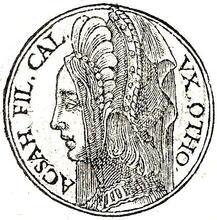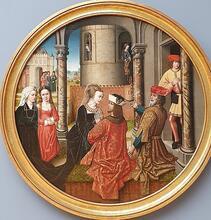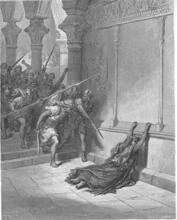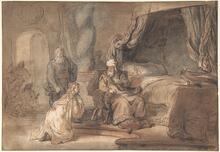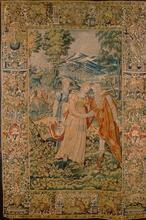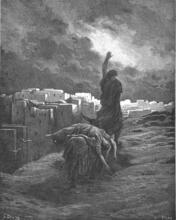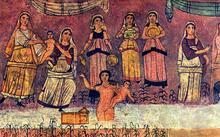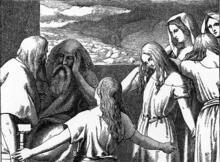Maacah 4: Midrash and Aggadah
The Midrash and Aggadah regarding Maacah, daughter of Abishalom, who worshiped an idol, focuses mostly on her pagan worship of Asherah.
Article
The A type of non-halakhic literary activitiy of the Rabbis for interpreting non-legal material according to special principles of interpretation (hermeneutical rules).Midrash hardly mentions Maacah daughter of Abishalom, nor does it seek to shed light on her lineage, which is unclear in the Bible. Maacah is mentioned by the Rabbis as the mother of Asa. Most of the midrashic attention is devoted to her singular pagan worship of Asherah, which the Bible (I Kings 15:13) calls a “miflezet [an abominable thing]”: “He also deposed his mother Maacah from the rank of queen mother, because she had made an abominable thing for [the goddess] Asherah. Asa cut down her abominable thing [miflaztah] and burned it in the Wadi Kidron.” The word miflezet is derived from the root plz, meaning trembling, fear. In the verse in Kings, this is a derogatory term for such an object of idolatrous worship. The associative meaning is that the God-fearing were overcome by trembling and disgust when they saw people engaging in the cult of Asherah.
The Rabbis expound miflaztah as an abbreviation for mafli leznuta - that is, the worship of this idol “intensifies licentiousness.” They describe the worship of Asherah as sexual: Maacah made a phallus with which she sported every day (BT Avodah Zarah 44a).
From the Biblical record of Asa’s grinding up of the idol, burning it, and scattering its ashes in the Kidron, the Rabbis derive that an idol can be destroyed by pulverizing it and scattering it to the wind or dumping its ashes in the sea. Some Rabbis, however, oppose such a procedure. They maintain that these ashes become manure, which brings benefit to people; and such advantage from idolatry is forbidden, as is stated in Deut. 13:18: “Let nothing that has been doomed stick to your hand” (M Avodah Zarah 3:3). According to this latter view, Asa spread the ashes of Maacah’s idol in a place in the Kidron where no vegetation grew (BT Avodah Zarah loc. cit.).

